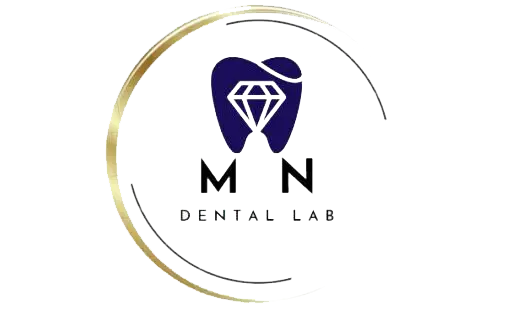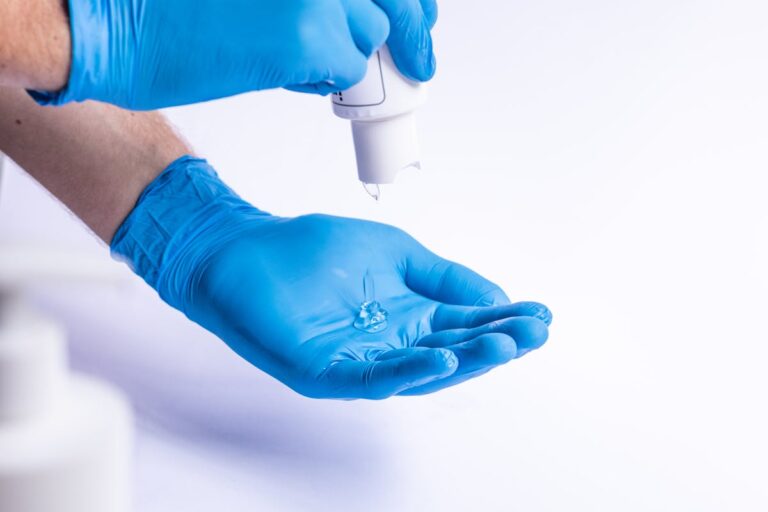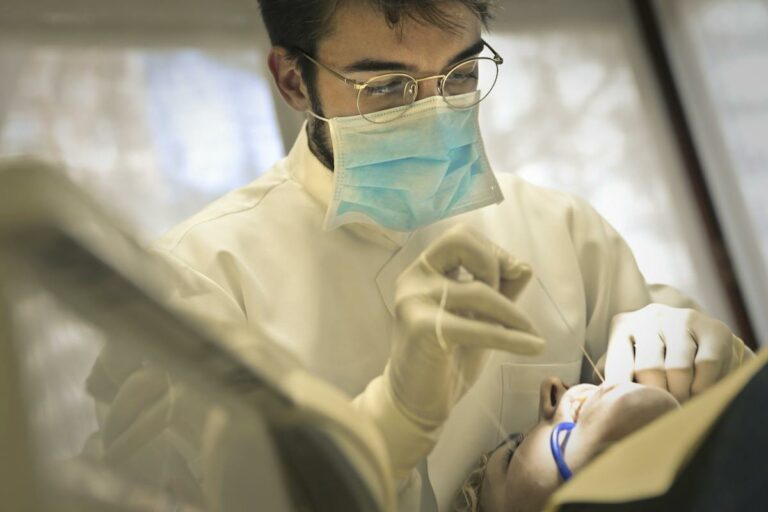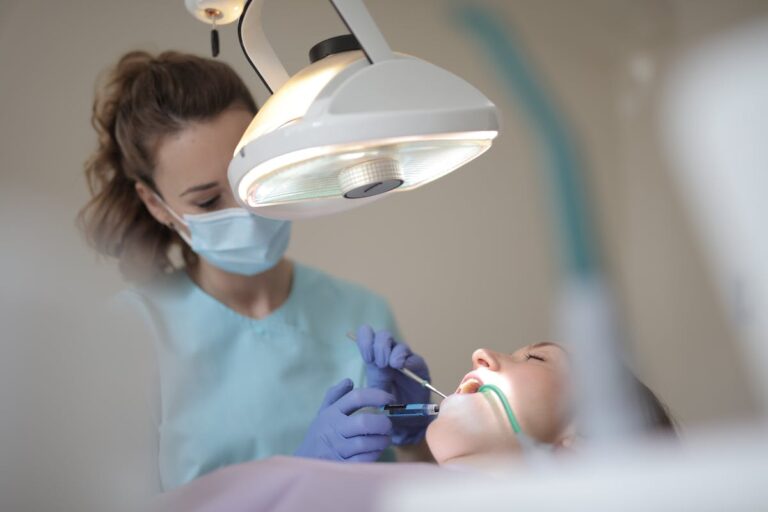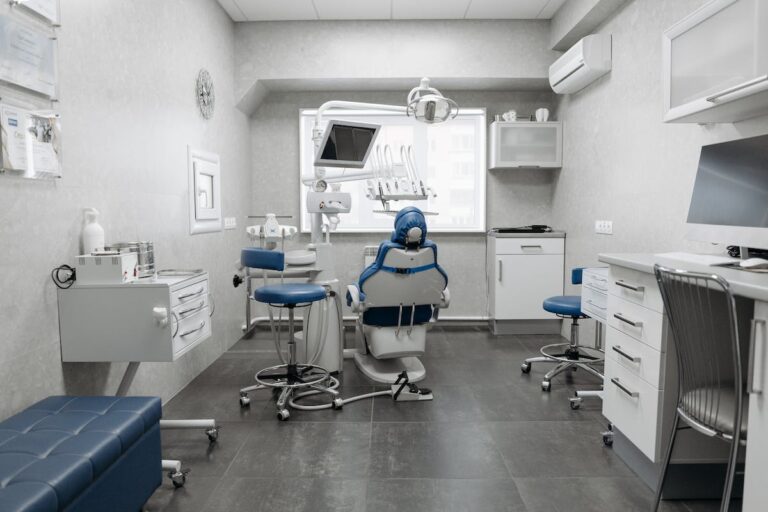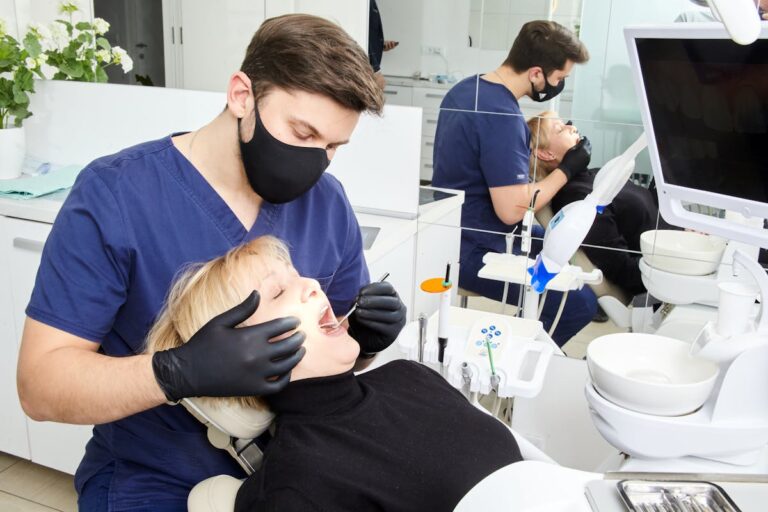Post-procedure dental care instructions are as critical as the procedure for patient recovery, complication prevention, and long-term oral health. However, patients often struggle with understanding and applying these guidelines. Effective communication methods for these instructions, the importance of follow-up appointments, and strategies to manage post-procedure anxiety can improve patient outcomes.
Understanding Dental Procedures
Dental procedures, varied in type, aim to preserve oral health, improve aesthetics, and regain functionality. Post-procedure care instructions are unique to each treatment, ensuring optimal recovery and results. Comprehending the procedures, associated costs, and expected durations is crucial for patient education.
Costs of dental procedures fluctuate based on treatment complexity, dental professional’s expertise, and the dental clinic’s geographical location. Routine procedures like teeth cleaning or filling are reasonably priced, while complex treatments like root canal therapy, orthodontics, or dental implants may have higher costs.
The duration of dental procedures varies. Teeth whitening or dental fillings can be completed in one visit, whereas dental implants or orthodontic treatments may take several months and multiple visits.
Understanding the costs and duration of dental procedures aids patients in making informed oral health decisions. It also sets realistic expectations, reduces anxiety, and enhances satisfaction with the received dental care.
Post-Procedure Oral Hygiene
Post-dental procedure, strict oral hygiene is vital to prevent complications and promote healing. The routine includes daily oral care, discomfort management, and infection prevention. Understanding these practices ensures a quick, complication-free recovery.
Maintaining Daily Oral Routine
Post-procedure, optimal healing and complication prevention hinge on a strict oral hygiene routine. Essential to this routine is effective brushing, performed twice daily with a soft-bristle toothbrush for thorough teeth surface cleaning.
Equally important is daily flossing, which removes plaque and food particles from between teeth and along the gum line, reducing infection risk and promoting oral health. Therefore, post-dental procedure care necessitates diligent brushing and flossing techniques.
Managing Post-Procedure Pain
Post-procedure dental pain management is vital for effective healing and oral hygiene. Pain thresholds vary, but several strategies can alleviate discomfort:
- Prescription medication: Dentists prescribe pain relievers for discomfort management. Adherence to dosage instructions is crucial.
- Over-the-counter medication: Using non-prescription drugs like ibuprofen may be beneficial. Dentist consultation prior to OTC medication use is imperative.
- Alternative relief: Cold compress application or clove oil use can provide temporary respite.
Preventing Infection and Complications
Post-dental procedure, managing discomfort and preventing infection and complications are key for optimal oral hygiene. Persistent pain, swelling, pus formation, or fever are infection indicators requiring immediate attention. Dentists may recommend antibiotics, which must be taken as directed without missed doses, to control infection. Strict oral hygiene, including regular brushing and flossing, can inhibit harmful bacteria. Following specific post-procedure care instructions from your dentist is crucial to prevent complications.
Aftercare for Tooth Extractions
Tooth extraction recovery requires careful aftercare.
- Bleeding Control: Apply pressure to the extraction site with a gauze pad for 30-45 minutes to promote clotting. Replace if soaked.
- Infection Prevention: Avoid disrupting clot or introducing bacteria with actions such as vigorous rinsing, smoking, or consuming hard, hot, or crunchy foods. Use saline rinses 24 hours post-extraction.
- Swelling and Pain Management: Use ice packs in 10-minute intervals for swelling. Manage pain with OTC or prescribed medication.
Adherence to these steps promotes healing, minimizes discomfort, and reduces complication risks like dry socket and infection. Consult a dentist for severe pain, excessive bleeding or unusual symptoms.
Post Root Canal Therapy Care
Root canal therapy, similar to tooth extractions, requires specific post-procedure care. Contrary to common myths, this therapy isn’t painful but rather relieves pain from damaged or infected tooth pulp.
Post-procedure care includes avoidance of eating until numbness subsides and abstaining from using the treated tooth for biting or chewing until restoration. Continuation of thorough oral hygiene practices is critical to prevent infection.
The therapy recovery timeline ranges from a few days to a week, influenced by individual healing rates and procedure complexity. Normal post-procedure symptoms include area tenderness, manageable with over-the-counter painkillers. Consultation with a dentist is necessary should severe pain or pressure persist beyond a few days.
Managing Pain After Dental Procedures
Pain management post-dental procedures is crucial for patient recovery. Understanding post-procedure discomfort, which varies per dental procedure, is key. Implementing effective pain management techniques and using appropriate dental pain medication significantly enhances patient comfort and accelerates healing.
Understanding Post-Procedure Discomfort
Understanding and managing post-procedure discomfort aids in smooth dental recovery. Discomfort sources include the procedure’s direct impact causing inflammation and soreness, the emotional impact amplifying pain perception due to anxiety and stress, and the body’s healing process triggering temporary discomfort. Knowing these aspects prepares patients for recovery, eases concerns, and underscores discomfort as a normal part of post-procedure recovery.
Effective Pain Management Techniques
Managing post-procedure dental pain involves numerous effective techniques. Individual pain perception variations necessitate tailored approaches. Non-pharmacological interventions, like cold compresses and mouth rinses, offer relief. Deep breathing, guided imagery, and distraction techniques like music or light activity also help. These techniques control, not eliminate pain. Persistent or increasing pain should be reported to dentists.
Medication for Dental Pain
Post-procedure dental pain management is crucial.
- Analgesics: Ibuprofen or acetaminophen, over-the-counter analgesics, are often prescribed by dentists. Patients must disclose medication allergies to avoid adverse reactions.
- Stronger Pain Medication: For severe pain, dentists may prescribe more potent medication. Strict adherence to dosage instructions is vital to prevent complications.
- Alternative Treatments: Some choose natural remedies like clove oil, saltwater rinses, or cold compresses. Consultation with a dentist before use ensures safety and efficacy.
Effective pain management, safety, and comfort are key post-procedure objectives.

Dietary Guidelines Post-Procedure
Post-dental procedure dietary guidelines are crucial for optimal recovery. Nutritional supplements, such as vitamin C and zinc, aid in wound healing and immune function, enhancing recovery. Introduce a high-quality multivitamin, under dental or nutritional supervision, for further recovery support.
Maintaining hydration post-procedure is vital, as it sustains salivary flow and prevents dry mouth, reducing the risk of infection or delayed healing. It’s advised to consume ample water and avoid hot, sugary, or acidic drinks that may irritate the surgical site or cause tooth decay.
A soft food diet, including mashed potatoes, scrambled eggs, or pureed fruits, is often recommended post-dental procedure. The reintroduction of harder foods depends on the procedure type and recovery speed. Adhere to dentist’s specific post-procedure dietary instructions.
Proper Medication Management
Post-procedure care necessitates effective management of prescribed medications along with adherence to dietary guidelines. This approach ensures pain relief, discomfort mitigation, and complication prevention.
Three fundamental steps for managing medications post-dental procedure are:
- Grasping Medication Interactions: Patients must comprehend potential interactions between prescribed drugs and other medications, supplements, or foods. This understanding prevents undesirable side effects and maintains medication effectiveness.
- Following Dosage and Timing: Strict adherence to prescribed dosage and timing is vital for patients to avoid overdose and ensure therapeutic effects during recovery.
- Engaging Healthcare Providers: Communication with healthcare providers about medication management is crucial. Patients should promptly report side effects, adherence difficulties, or lack of medication effect.
Effective medication management is a key component of post-procedure care, facilitating smooth recovery and complication prevention. Following these steps guarantees safe and effective medication usage.
Signs of Complications to Watch For
After a dental procedure, observe your health for potential complications. Notable signs include severe bleeding, unusual swelling, or escalating pain. Fever, malodorous discharge, or drug allergies manifested as breathing difficulty or rash, are also indicative of complications. Post-procedure numbness that extends beyond a few hours may suggest nerve damage. Difficulty in swallowing or mouth-opening are additional complication indicators.
In the presence of these signs, emergency interventions are required. Contact your dentist promptly if these symptoms appear. Immediate professional assistance can prevent further damage and improve dental health prognosis. To ensure swift recovery, stay vigilant of these signs and seek immediate help if needed.
Dealing With Post-Procedure Anxiety
Addressing post-procedure anxiety is vital for holistic recovery. It involves identifying anxiety symptoms and implementing coping strategies, coupled with seeking emotional support.
- Identify Anxiety Symptoms: Recognize early signs of anxiety such as restlessness, irritability, or concentration difficulties for effective management.
- Apply Coping Techniques: Employ strategies like deep breathing, progressive muscle relaxation, or guided imagery to reduce stress and induce calm.
- Obtain Emotional Support: Communicate anxiety feelings to loved ones or healthcare professionals. This support can mitigate distress and facilitate a positive recovery ambiance.
Importance of Follow-Up Appointments
Follow-ups after dental procedures are vital for successful recovery. They enable dentists to monitor healing, manage complications, and educate patients. These appointments assess healing, adjust dental appliances, and determine additional treatment needs. They also address patient concerns and discomfort.
Scheduling follow-ups promptly after the procedure is crucial. Typically, the first post-operative visit happens within a week, with further follow-ups depending on the procedure and patient needs.
Allocating time for these appointments is necessary as missed visits may delay recovery, cause complications, or require further procedures. The recovery process extends beyond the dental chair and includes these necessary post-procedure follow-ups.
Maintaining Long-Term Oral Health
For sustained oral health, adhere to three key steps:
- Dental Check-ups: Schedule and attend regular dentist appointments for early detection of teeth or gum issues. Dental insurance often covers these cost-effective visits.
- Oral Hygiene Practices: Brush twice daily, floss, and use mouthwash for plaque removal, gum disease prevention, and overall oral health.
- Oral Health Diet: Ensure intake of foods rich in calcium and vitamin D for healthy teeth and gums. A balanced diet contributes to both general and oral health.
Frequently Asked Questions
How Long Will It Take for Me to Fully Recover From a Dental Procedure?
The recovery duration from dental procedures depends on the procedure’s complexity, typically ranging from a few days to a week. Pain management and dietary changes significantly contribute to the recovery process. However, complex procedures necessitate a lengthier recovery period.
Are There Any Recommended Activities or Exercises to Help With Recovery?
To aid dental procedure recovery, ensure good oral hygiene. Balanced diet with high Recovery Nutrition promotes healing. Professional-guided Oral Strengthening exercises can expedite restoration of normal function.
What Kind of Support Will I Need at Home After My Dental Procedure?
Post-dental procedure, you’ll require home care that includes pain management via medication, dietary adjustments to soft foods or liquids, and assistance with tasks for effective recovery.
Are There Any Alternative Treatments if I Don’t Want to Undergo a Dental Procedure?
Indeed, alternatives exist. Natural remedies support oral health, and sedation dentistry could be an option for dental phobia sufferers. Discussing with your dentist ensures optimal choice selection.
How Will the Dental Procedure Affect My Overall Health, Not Just My Oral Health?
Dental procedures directly enhance oral health, prevent infection spread, and improve digestion by enabling efficient chewing. They also indirectly reduce disease risks, including diabetes and heart conditions, contributing to overall health improvement. Every aspect offers vital health benefits.
